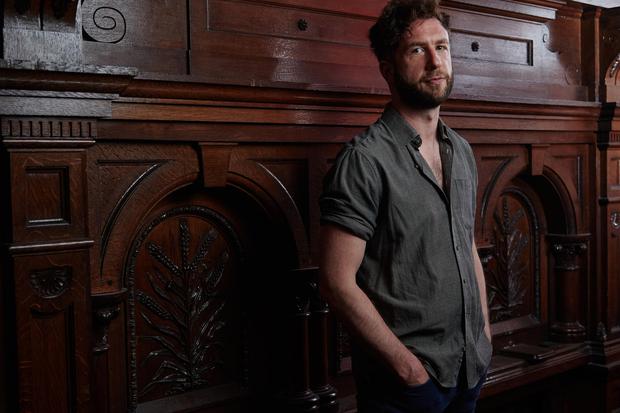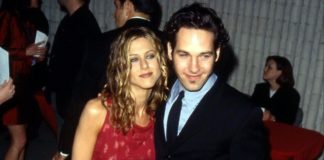It was on a Steinway grand piano in what was once one of Cork’s most striking Protestant churches that Jack O’Rourke made the bones of his lockdown album.
he Cork teacher and musician, who came to national prominence six years ago with the striking single Silence had been given access to in Triskel Christchurch to record new material and he connected deeply with its old piano.
“I think pianos are a bit like people,” he says, speaking to Review a few hours before Tuesday’s RTÉ Radio 1 Folk Awards at Vicar Street, Dublin, where he was one of the nominees. “They keep ghosts and secrets and energies in them. That might sound a bit romantic, but it’s something I really believe.”
O’Rourke had played shows at the deconsecrated church, now under the management of the Triskel Arts Centre. Having heard “a rumour that the National had recorded there around the time of Sounds from A Safe Harbour [the Cork arts festival]”, he inquired if he could record there. “I was told I could, simply because there were no shows happening there.”
It was over six days at the venue that he discovered the Steinway ‘Model C’, and its sound dominates the resulting album, Wild Place.
“My drummer, Davie Ryan, who produced the album with me, came in and when he heard the first couple of songs, he said, ‘I’m not putting any drums on these.’ And he was right. The songs worked as they were.”
O’Rourke believes the building, long known as the Holy Trinity Church and dating from 1740, left its imprint on the album too. “I’m not religious at all, but there is something very spiritual about that space,” he says.
The sound engineer, Chloé Nagle, helped O’Rourke make the most of the acoustics provided by the centuries-old walls and the high ceiling. “She’d worked with Mick Flannery and Scullion and done the sound for Other Voices and knew exactly where to position the microphones to get that lovely resonance you hear on the album,” O’Rourke says.
Wild Place is his second album and as accomplished a collection of songs as you’ll hear from any Irish musician this year. Much of it was inspired by going back to live with his parents in the village of Ovens, not far from Cork city, while waiting to complete a house purchase.
Video of the Day
“I was around nature then and a lot of songs stemmed from my roots. I felt invigorated by nature — it helps that I’m quite introverted — but I felt so grounded and recharged and any of my anxieties that had been there just evaporated,” he says.
One of the album’s high points, the exquisite, strings-flecked Sea Swimming, captures that reawakened appreciation for the natural world. “It’s one of my only happy songs,” he says, with a laugh. “I was in a space where I was recently single and I didn’t feel much purpose and I just started singing with my mates in the sea. I’d been a bit cynical of seeing people with their Dryrobes — it’s a bit like seeing walkers with those canes and having all the gear — but I really caught the bug. I felt completely invigorated by it. I felt like a child again, like I say in that line, ‘Laughing in the tide with no motive’.”
It’s a song with echoes of REM’s Nightswimming, and the great American band gets name-checked in the lyrics, too. “I think Michael Stipe is one of the most underrated singers — there’s such a beautiful cry in his voice, a bit like Emmylou Harris,” he says. “Even though he’s a great rock singer, there’s such a beautiful tone there.”
O’Rourke grew up listening to many of the giants of song. Bob Dylan, Leonard Cohen and Joni Mitchell were in constant rotation when he was a child. More recently, John Prine’s music came into his life — and left an indelible residue. “Language and lyrics have always meant a great deal to me and because John Prine wrote very simple songs, musically, it took me a while to appreciate him. But it was his words, and his delivery and his ability to capture pathos and humour, sometimes in the same song, that really made an impression on me. He and Randy Newman did that [pathos and humour juxtaposition] better than maybe anyone.”
He says Prine’s approach to songwriting informed his work on the new album. While there are songs that are inspired by the personal, O’Rourke tends to spread his net wide.
Wild Place is the work of one who places great care on lyrics. “I think when your parents bring you up listening to Dylan and Cohen and Richard Thompson, Joni and Paul Simon, you get a sense of the power of words, of really well-written lyrics. Stories are particularly important to me and I’ve always appreciated the skill of being able to tell stories in songs.”
As an English teacher at Gaelcholaiste Mhuire, North Monastery on the northside of Cork city, he says words are central to his day job too.
He is also a music teacher at the Irish-language school, and teaches as Gaeilge. “I’ve had some amazing artists come through my tutelage. Dylan Howe is in the band Rowan and he was in my first Leaving Cert class in that school. I was watching Normal People and this voice came on the soundtrack and I recognised him as another student from that first Leaving Cert class. It was Graham Cooney, who goes under the name Yenkee, and he’s making incredible, interesting pop music. Check out his song Cannibal Tree.”
O’Rourke came to prominence in 2015, at the time of the marriage equality referendum. His song, Silence, became something of a de facto anthem for the LGBT movement. He poured all of himself into a song that captured the challenges of coming out in rural Ireland.
“It was the unspoken code — it wasn’t talked about. I knew I was gay at 12 — 100pc, but I’d no role models to look up to, it just wasn’t in the vernacular. Whereas now, it’s just so open… I look at the younger generation and when someone comes out it’s like they’re saying, ‘I had porridge for breakfast’. It just isn’t a big deal any more and that’s great.”
O’Rourke is looking forward to taking Wild Place on the road. First, there’s a special album launch show at Triskel Christchurch next weekend, and then he will embark on a modest nationwide tour. He says he is excited about playing the Unitarian Church on Dublin’s St Stephen’s Green on February 12.
And, then, next summer he will enjoy an artist-in-residency opportunity in Paris. “It’s the Centre Culturel Irlandais. I played a double headliner there a couple of years ago with Thanks Brother, Róisín O’s band. We stayed there for three days and I fell in love with the place. I think [WB] Yeats would have stayed there and Brendan Behan. They offer residencies and I applied and was successful and I’ll be there for the whole of July.”
He is already thinking of a new project to work on there. “I have an idea for a concept album, maybe looking at the stories of queer Irish men like Roger Casement or people that we’re not sure of [their sexuality], such as Brendan Behan. It’s always interesting when you’re writing from other people’s perspectives. You have to be empathetic, but it comes down to you because you see yourself in the people you’re writing about.”
‘Wild Place’ is out now. Jack O’Rourke plays Triskel Christchurch, Cork, next Saturday.









